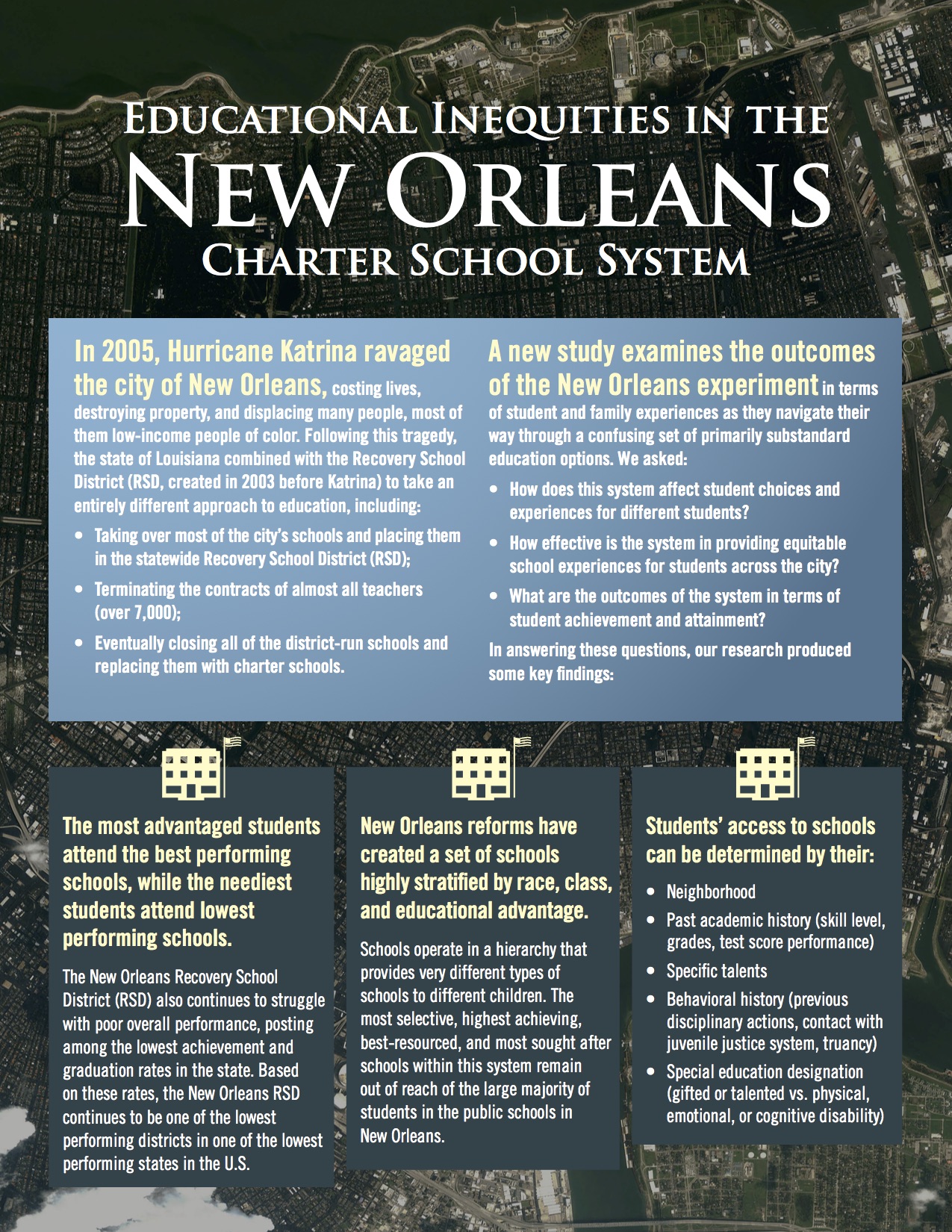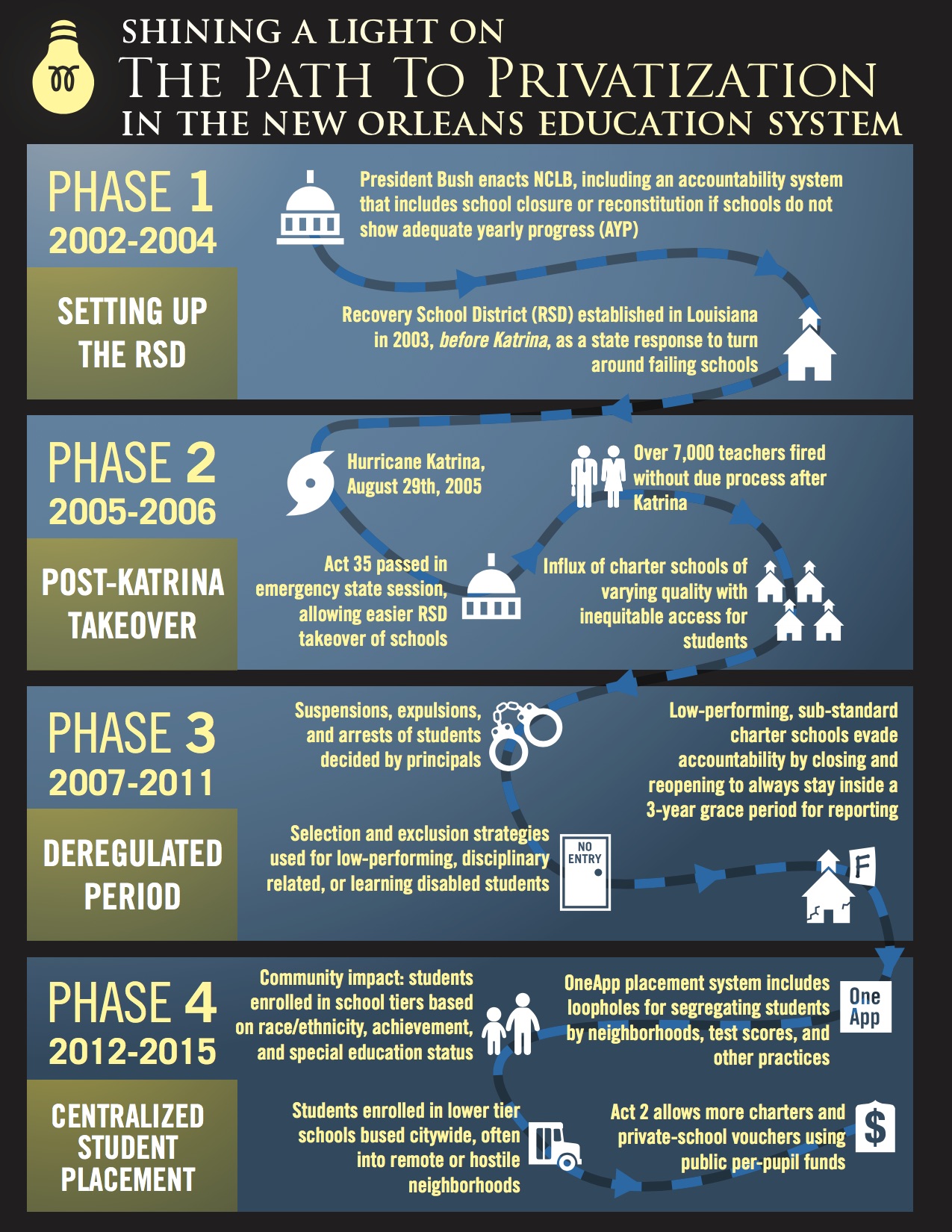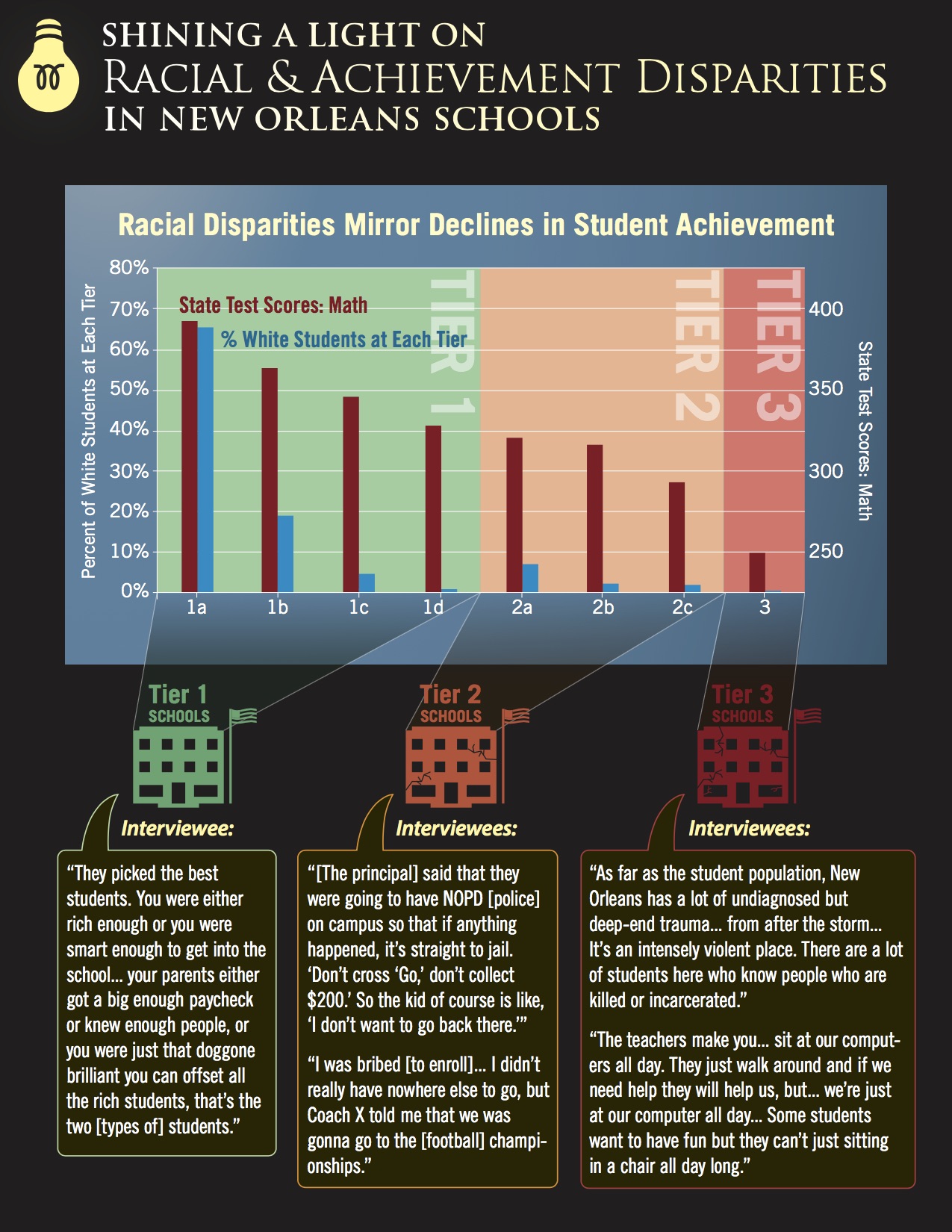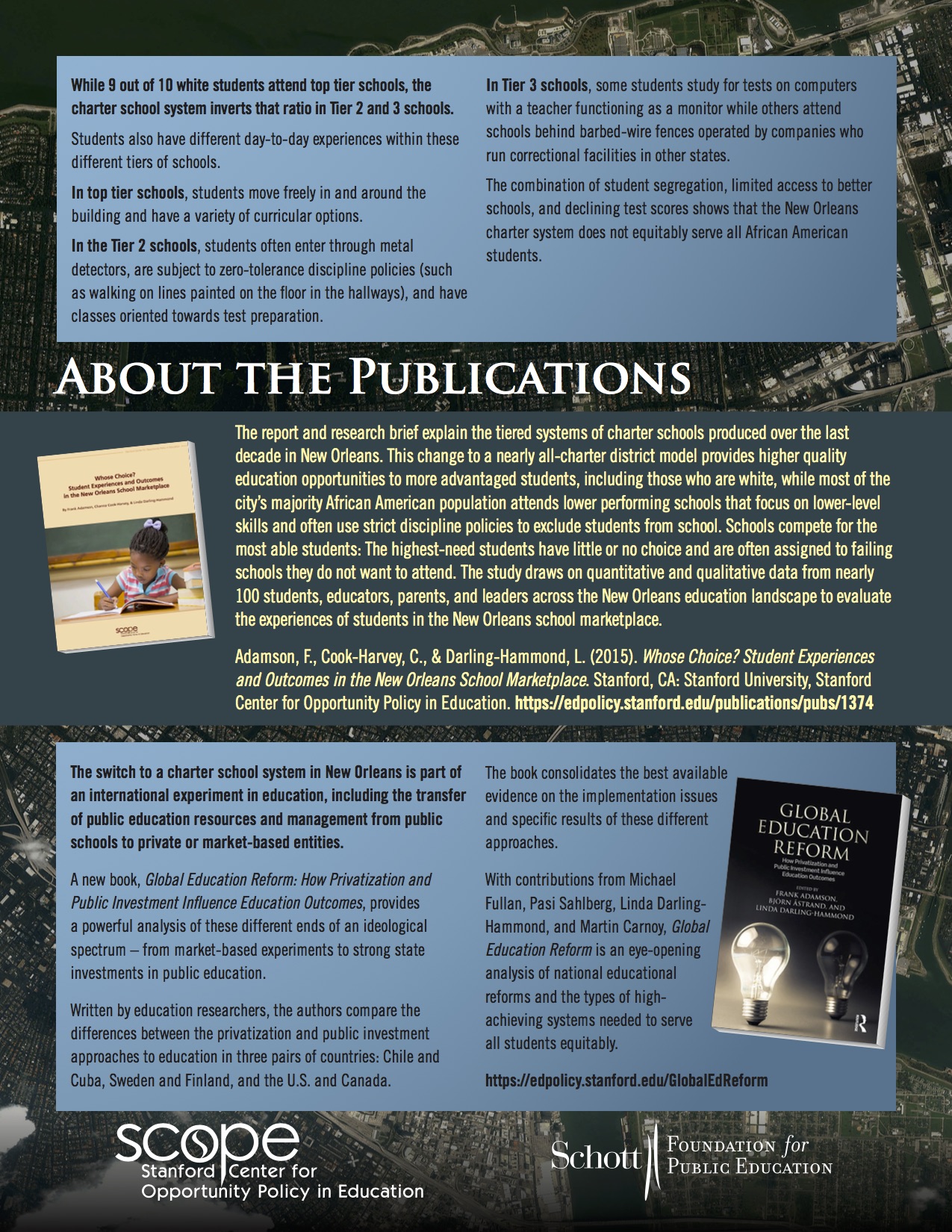Infographic
Educational Inequities in the New Orleans Charter School System
New Orleans provides a model for examining the feasibility of a nearly 100% charter, market based system of schools. This is truly an education experiment on a grand scale, and because New Orleans’ system is unique, the nation is watching. How is it working?
A recent SCOPE study examines the New Orleans experiment in terms of the experiences of students and families managing their way through a portfolio of charter schools. Among many findings, the research shows that New Orleans reforms have created a set of schools that are highly stratified by race, class, and educational advantage, operating in a hierarchy that provides very different types of schools and to different types of children. While some have choice; others do not.
A new book, Global Education Reform: How Privatization and Public Investment Influence Education Outcomes, provides a powerful analysis of these different ends of an ideological spectrum – from market-based experiments to strong state investments in public education. Written by education researchers, the authors compare the privatization and public investment approaches to education in three pairs of countries: Chile and Cuba, Sweden and Finland, and the U.S. and Canada. The book consolidates the best available evidence on the implementation issues and specific results of these different approaches. (Take a look at our international infographic here.)
This infographic was a collaboration between the Schott Foundation and SCOPE.





